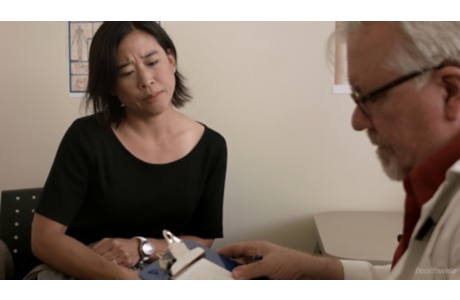Blood Thinners Other Than Warfarin: Taking Them Safely
Blood thinners are medicines that help prevent blood clots. Because they prevent clots, they also help prevent heart attacks, strokes, and other problems caused by blood clots. But blood thinners can also raise the risk of serious bleeding. So it's important to know how to take them safely.
How do you take blood thinner medicine safely?
This information is for people who take all blood thinner medicines except warfarin. There are some extra steps to take if you use warfarin.
These steps can help you take blood thinners safely.
- Take your blood thinner properly.
- Take your medicine at the same time each day.
- If you miss a dose, don't take an extra dose to make up for it. Your doctor can tell you exactly what to do so you don't take too much or too little.
- Store your medicine the right way. A few medicines must be stored in their original containers so they don't spoil. If your medicine label has this instruction, then don't use a pillbox for that medicine.
- Prevent falls and injuries. For example:
- Wear slippers or shoes with nonskid soles.
- Remove throw rugs and clutter.
- Rearrange furniture and electrical cords to keep them out of walking paths.
- Keep stairways, porches, and outside walkways well lit. Use night-lights in hallways and bathrooms.
- Be extra careful when you work with sharp tools or knives.
- Be careful with other medicines. Taking certain medicines along with a blood thinner can cause bleeding. It also can change how well your medicines work.
- Tell all of your doctors, dentists, and pharmacists that you take a blood thinner.
- Give your list of medicines to every doctor and dentist who treats you. Include all of the prescription medicines, over-the-counter medicines, antibiotics, vitamins, and herbal products that you take.
- Talk to your doctor before you start or stop taking any medicines, vitamins, or natural remedies.
- Don't take aspirin and other pain relievers, such as ibuprofen (for example, Motrin), unless your doctor tells you to take them and when and how to take them.
- Talk to your doctors about surgeries and tests. Talk with your doctor about whether you need to stop taking your blood thinner for a short time before any surgery or medical or dental procedure. Your doctor will tell you when it is safe to start taking your medicine again.
- Wear medical alert jewelry. These are bracelets, pendants, or charms that let others know you take a blood thinner. You can buy them at most drugstores.
- Talk to your doctor if you are pregnant, breastfeeding, or trying to get pregnant. You and your doctor will decide what medicines are safe.
- Know when to get help for signs of bleeding. Call 911 or other emergency services right away if:
- You have a sudden, severe headache that is different from past headaches.
- You cough up blood.
- You vomit blood or what looks like coffee grounds.
- Your stools are maroon or very bloody.
- You are in a car accident.
- You fall, hit your head, or have another serious injury that may cause bleeding.
- You have trouble talking, weakness, or loss of function in your face, arm, or leg, especially on only one side of the body.
- You have other severe bleeding.
- Contact your doctor now or seek medical care right away if:
- You have new bruises or blood spots under your skin.
- You have a nosebleed that is hard to stop.
- Your gums bleed when you brush your teeth.
- You have blood in your urine.
- Your stools are black.
- You have blood in your stools.
- You have vaginal bleeding that is different than what you are used to. It may be heavier, longer, more frequent, or at a different time of the month, or it may have clots in it.
Credits
Current as of: October 2, 2025
Author: Ignite Healthwise, LLC Staff
Clinical Review Board
All Ignite Healthwise, LLC education is reviewed by a team that includes physicians, nurses, advanced practitioners, registered dieticians, and other healthcare professionals.
Current as of: October 2, 2025
Author: Ignite Healthwise, LLC Staff
Clinical Review Board
All Ignite Healthwise, LLC education is reviewed by a team that includes physicians, nurses, advanced practitioners, registered dieticians, and other healthcare professionals.




